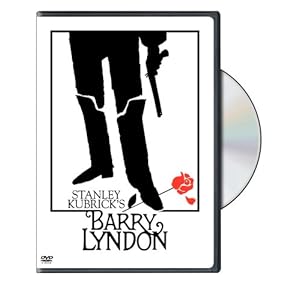
Barry Lyndon is one of Stanley Kubrick's least known films, especially looking at his later career, but that certainly has nothing to do with its quality. 2001: A Space Odyssey is famous for its length, but Lyndon is even longer, with a running time that matches the breadth of its scope. It's essentially a historical epic set in the 1700s centered around the titular character, who goes from being a poor Irish kid to a hardened soldier in the Seven Years' War to the husband of a wealthy landowner trying desperately to earn a title. Ryan O'Neal plays Redmond Barry, and while it's not exactly the most memorable performance Kubrick ever directed, it's a subtly good one. The character ages quite a bit during the story, and beyond a few hair and costume changes, that's all carried by O'Neal's acting, who gradually has his character grow up in an impressive way over the movie's three hours.
It's a very stately movie, with a few moments of violence scattered about, including a duel near the end that's among the finest scenes Kubrick ever filmed, but mostly sticking with the same pace and mood the entire time. It's the kind of movie that could have easily been achingly boring if not handled properly, but the cast does well with the potentially awkward period dialogue and makes every supporting character worth existing and taking up screen time simply because they're interesting enough. The acting is good and the story is interesting enough especially if you're at all interested in history, but the movie's strongest asset is definitely its look, which won it multiple awards.
Kubrick and his crew developed techniques that allowed them to film using only natural light, and the effect is often stunning. Many movies are visually impressive because their images pop in a way that real life just doesn't, but what's impressive about Barry Lyndon is how close it actually looks to real life. The effect is greatest on indoor night scenes, which are lit only by candle and are just unlike anything else in cinema. It could be because I only just saw it, but I might call it the most natural looking film I've ever seen. And that really helps the historical aspect of it. It definitely wouldn't be the first thing I'd recommend to someone looking to know more about one of my favorite directors, but if you know what to expect it can be quite enjoyable.
AAAAAGGGHHHH
16 years ago


































No comments:
Post a Comment